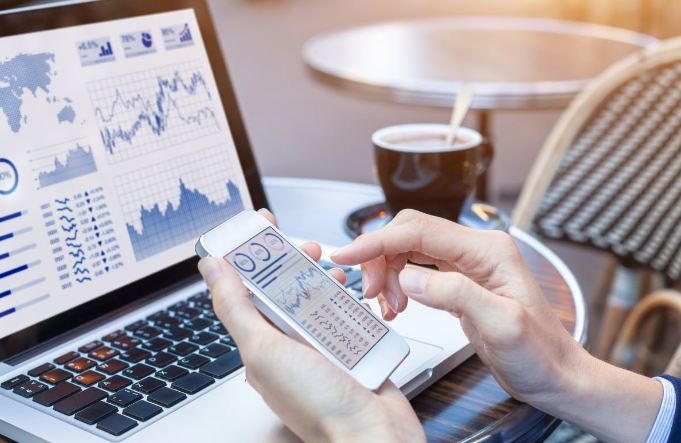Trading futures means buying or selling in futures contracts. A futures market is a centralized place of exchange for such buyers and sellers from all over the world who meet and enter into futures contracts.
The futures contract states the price that will be paid at the date of delivery, which always is a future date.
The fun about this kind of trading is that most of the futures contracts do not make an actual physical delivery of the commodity at the end!
The price may be settled upon through an open cry auction, or bids and offers can be matched electronically.
You may go for futures trade if you feel attracted to try and make profits from long-term speculations on prices of goods and services.
To see what a futures market is and how it works, we can take an analogy from common experience.
Suppose you decide to buy a three-year internet service. You then have to enter into an agreement with a supplying company, specifying a certain quality of service at a certain rate, to be paid every month for the following three years.
This is very akin to a futures contract. In a futures contract, you agree to receive or provide a product at a future date, with the price and terms for delivery pre-fixed in the contract.
In our example, the actual price of the service may rise or fall during that three-year period, but the futures buyer has secured his/her price for the next three years (or as the case may be) and reduced his/her risk of higher prices, while foregoing the opportunity of gaining from lower prices.
Though we hear of the futures market mostly with reference to stocks, this type of trading may very well extend to any product.
A producer of potatoes may be trying to secure a selling price for the crop in the next season, while a producer of French Fries may be trying to secure a buying price, to help him decide on the quantity of fries to be produced to project the level of profit.
So the farmer and the French Fry seller may enter into a futures contract requiring the delivery of 5,000 units of potato (whatever might the unit be) to the buyer in March at a price of 40 per unit.
By entering into this futures contract, both the French Fry seller and the farmer secure a price that they believe to be advantageous in March.
It is not the actual crop itself but this contract, that is then bought and sold in the futures market.
The party who agrees to deliver a commodity is called a short position and the party who agrees to receive a commodity, a long position.
A futures contract is an agreement between the long and short positions.
The profits and losses of futures are calculated on a daily basis as they occur from the daily movements of the market for that contract.
For example, say the futures contracts for potato increases to 50 per unit the day after the above potato farmer and fries maker enter into their futures contract.
The farmer, as the holder of the short position, has lost 10 per unit because the selling price just increased from the future price at which he is obliged to sell his product.
The fries maker, as the long position, has profited by 10 per unit because the price he is obliged to pay is less than what the rest of the market will be obliged to pay in the future for potato.
As the market moves every day, these kinds of adjustment are made accordingly. Unlike the stock market, futures positions are settled on a daily basis, which means that gains and losses from a day’s trading are debited from or credited to a person’s account each day.
If you have an aptitude for analyzing successfully these everyday trends, and if you hope to be rewarded for your accuracy in reading these signs every day, the futures market is the thing for you.

